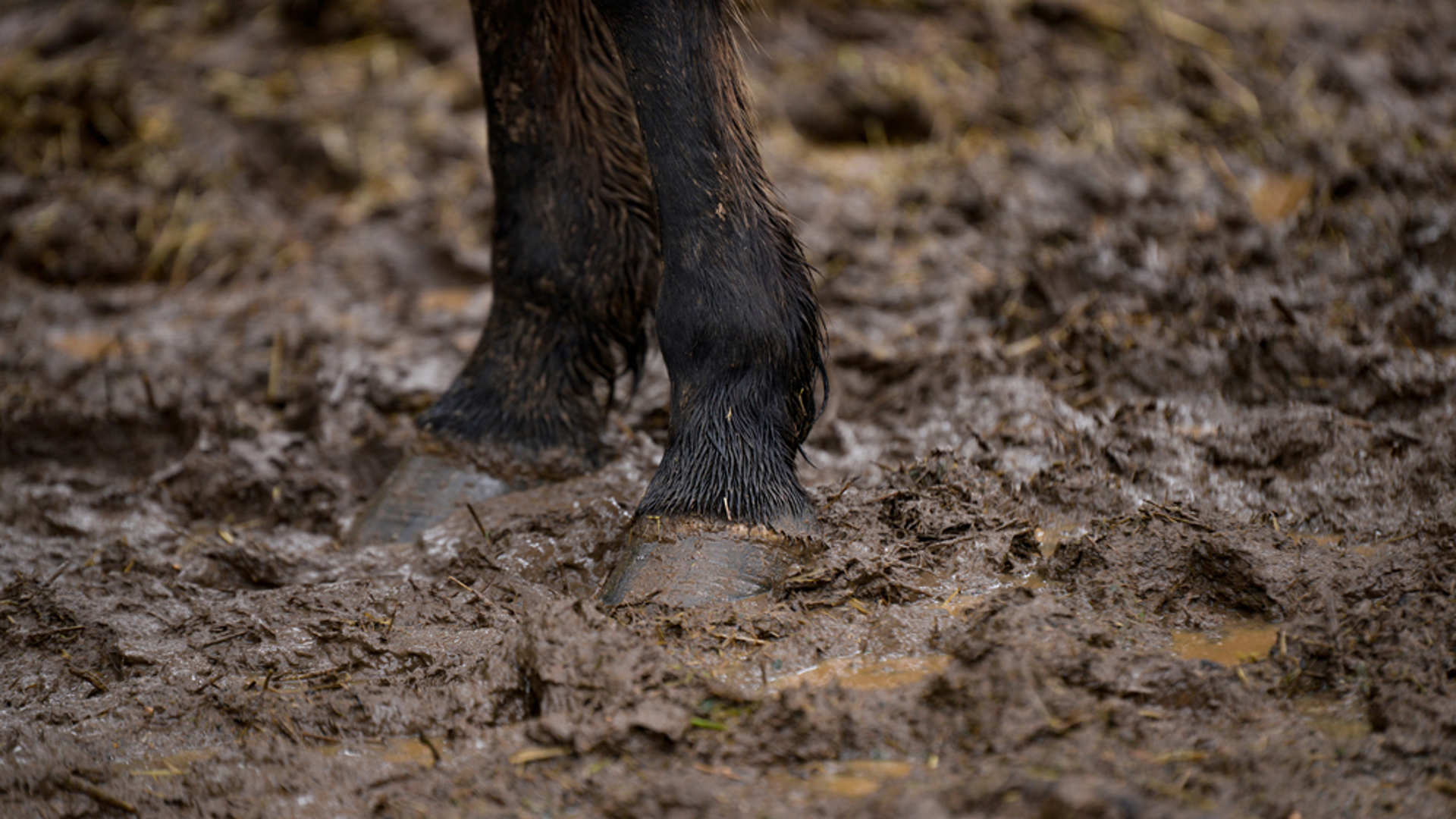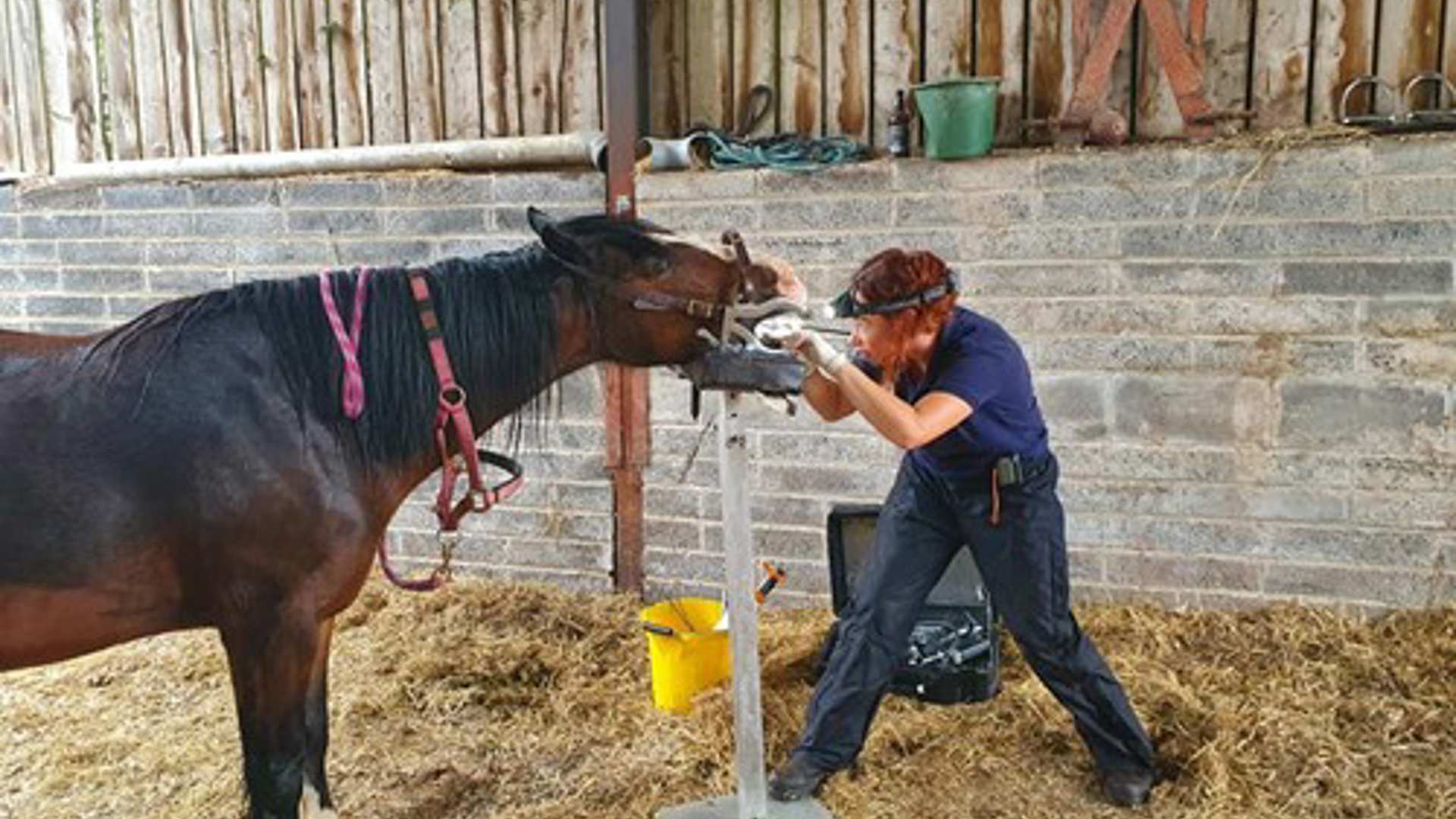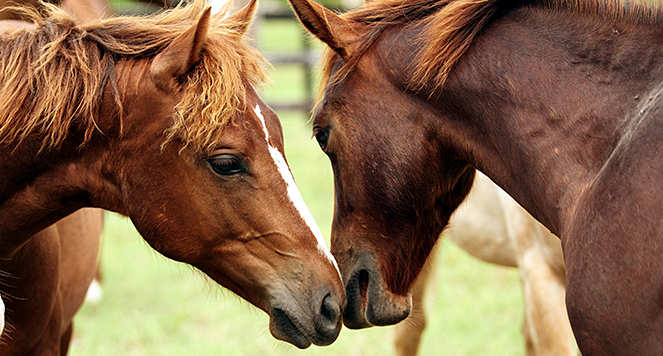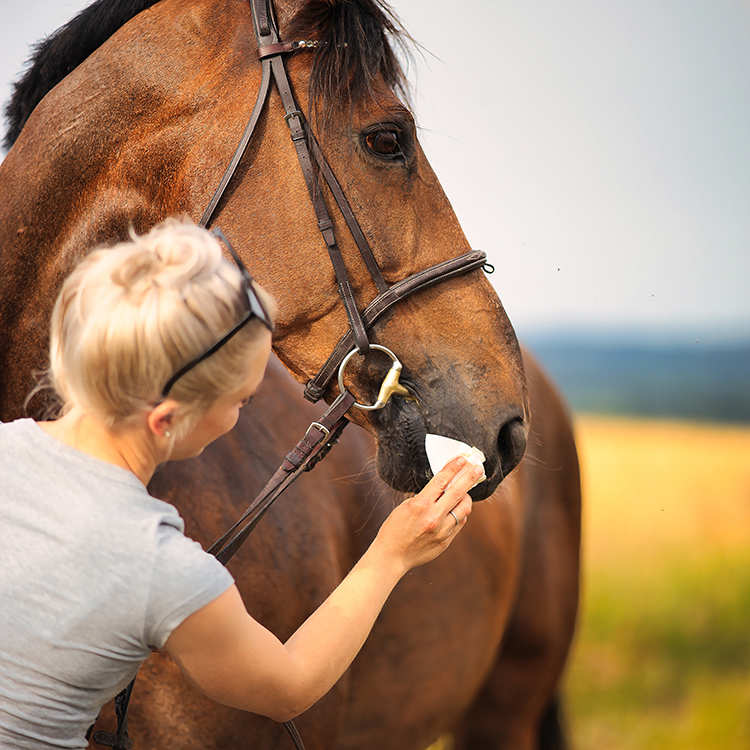
We are aware there are currently some cases of Strangles in the area, which is understandably causing some concern. We will be sharing some information here on what Strangles is, how to prevent your horse from getting it, and how to look after your horse during an outbreak.
What you need to know about Strangles
What is Strangles?
Strangles is a bacterial infection caused by Streptococcus equi (commonly called S. equi)
It is a highly contagious respiratory disease of horses, donkeys and other equines, and is one of the earliest ever recorded horse diseases – it has been around for nearly 800 years. It does not infect humans or other animals.
Being highly contagious means that only a few bacteria are capable of causing disease in an uninfected horse. The bacteria does not survive long in hot dry conditions but can survive extended periods of time (several weeks/months) in wet conditions or water. This is why water troughs can be a common source of infection. Strangles infection is very common in horses in the UK and worldwide, with hundreds of outbreaks every year in the UK alone.
Strangles is normally an upper respiratory disease. It causes a fever, snotty nose, cough, and swollen lymph nodes around the head and throat which then burst as abscesses. This can cause significant pain and distress for horses. The good news is that many horses only experience mild or moderate signs of disease, and while they may feel quite unwell while they have it, the majority of horses make a full recovery. Unfortunately, some horses can experience more severe disease requiring more intensive treatment, and occasionally complications of strangles can be fatal for horses.
Strangles can continue to live in the guttural pouches of horses who have had the infection for many years. This is because the guttural pouch is a warm and moist environment which is perfect for keeping bacteria alive, and it can hide from the horse’s immune system here! These horses have no clinical signs of Strangles, and are known as carriers. They can shed the bacteria in their nasal secretions, and can therefore pass the disease on to other horses they are in contact with. Shedding is often increased during times of stress – travel, moving yards, or other illness. Carriers can sometimes be detected on a blood test, but are often completely silent and can only be detected through advanced testing (guttural pouch washes)
How is Strangles transmitted?
What are the signs of Strangles?
What to do in a suspected outbreak?
Good biosecurity is the most important method to stop spread:
RED = horses showing clinical signs
AMBER = known or possible contact or shared spaces with any RED horse, but no clinical signs
GREEN = horses not known to have been in contact/exposed and with NO clinical signs.
- Create a ‘Traffic Light’ protocol with isolation of all horses into red, amber and green groups.
- Isolation should consist of a separate airspace where possible (e.g. separate barn/stable block per group), or where this is not possible a control zone of several metres should be placed around the red group area.
- Amber horses - any horses with direct nose to nose contact (e.g. field mates) with an infected horse, and horses with shared feed/water/turnout space/equipment with a red horse (consider horses in separate paddocks but able to touch over a fence), or stable mates who can touch but are in different fields.
- Use separate equipment and ideally people for each group. If this isn’t possible then: green group should be attended to first, then amber, then red. Do NOT go back to green or amber group having dealt with red group until suitably disinfected.
- Good disinfection between groups is vital: hands (wear gloves and then use hand sanitiser or wash with soap and water), boots (disinfect and scrub in foot dip), clothing (change clothing/overalls). Also disinfect any equipment that has to be shared; tack, brushes, buckets, troughs, etc.
- Monitor closely for clinical signs in all uninfected horses on premises – take the rectal temperature of all amber horses twice daily.
- Any horses with a fever (over 38.5 Celsius) must be immediately isolated. Fever often occurs first, several days before any other clinical signs.
- No horses should move on or off the yard until the outbreak is over.
Prevention
How can I stop my horse getting Strangles?
The best way to avoid getting Strangles is to regularly keep good biosecurity on your yard and when out or away with your horse:
- Use your own feed and water buckets and don’t share with other/unknown horses
- Avoid direct contact (touching) between horses when away at equine events
- Avoid using shared grazing spaces when away
- Handle just your own horse when away, or wash/sanitise your hands before and after touching other people’s horses
- If you travel between yards or horses, wash or sanitise your hands between horses.
- Monitor your horse’s temperature when you come back from events, and isolate your horse immediately if your horse has a temperature or you suspect something is wrong.
Remember it is always better to be careful, isolate your horse early and then discover that you don’t have strangles than it is to act too late and suffer a large outbreak!
Vaccines for Strangles?
There is a new vaccine available for Strangles in the UK. This vaccine is made from proteins from the cell wall of the S. equi bacteria. Because of this, horses cannot catch Strangles from the vaccine, and it is also possible when testing horses for Strangles to tell which horses have been vaccinated and which ones actually have the disease. As with any vaccine, horses can experience transient side effects from the injection.
Vaccination consists of a primary course of two vaccines given four weeks apart. Boosters are then required every 6 months similarly to flu vaccines, and can be given more frequently to give additional protection in already vaccinated horses in the face of an outbreak. Full protection is only achieved after the second vaccine of the primary course, and so vaccination alone is not good protection if there is an active outbreak, and biosecurity is still vital.
Stay in the know Related articles & advice
-
Mud Fever

-
Colic

-
Dental Health



